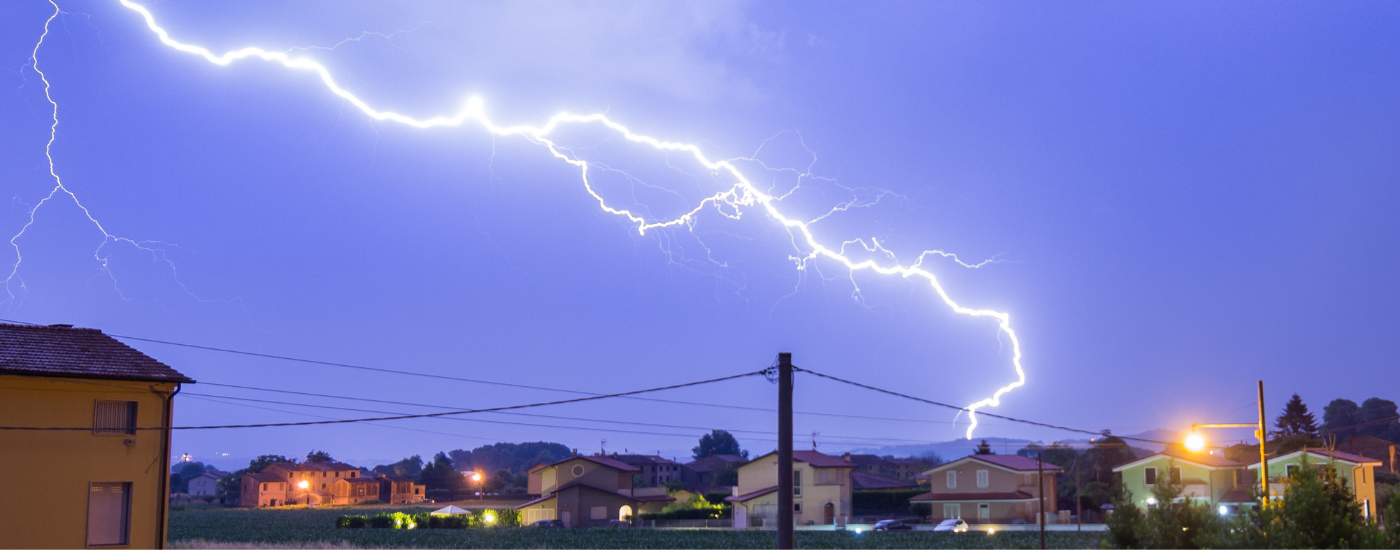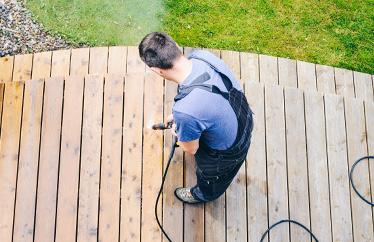Depending on where you are in the country, summer storms can mean something different. Maybe you are accustomed to a nice sprinkle that may just help cool some sweltering temperatures. Or maybe your summer storms come with a warning because there’s the risk of flash floods, lightning and possibly the beginnings of a tornado or hurricane. With water damage not only being the #1 reported insurance claim but one of the most expensive repairs to make, it is best to be as proactive as you can be against the impending summer storms and the possible damage they could bring.
-
Know your risk of summer storms
The time to prepare and be preventative is now. If you are native to the area you live in, you likely have some idea of what the summer weather will bring, but you may be unfamiliar with what the summer storms can be like if you are a new homeowner in an area. Consult your neighbors, your HOA, Google last year’s weather damage, and/or, if possible, speak to the previous owners to learn as much as you can about how to protect your home in the summer season best. Another great resource is floodsmart.gov to know about your home’s risk. Knowledge is power, and the more, the better.
-
Inspect your home
Start from the top (with the roof and then ceiling), working your way down (foundation and basement). Doing a thorough inspection of your home and surrounding property is your best bet to prioritize and strategize which projects are more urgent than others. A proper home inspection will also help you decide which tasks you can complete and which need to be handled by a professional. Still not sure? Hippo Home Care can help. This is a complimentary service for Hippo customers meant to help homeowners manage their home maintenance.
-
Work smarter, not harder
Invest in smart home devices that actively help you to combat potential water damage. Whether it is one of the water sensors sent by one of Hippo’s smart home partners or a much more sophisticated solution like the Flo device, these devices are worth their weight in gold. These not only alert you to a leak or possible flooding but may also employ a smart water shutoff valve to allow you to turn off your home’s water supply from anywhere.
It is also important to note that you may be eligible for a homeowners insurance discount when you add smart devices to help protect your home. Check with your provider.
-
Assemble an Emergency Prep Kit
No matter where you live, summer storms can pop up anywhere. That’s why it is so essential to include severe storm preparedness in your emergency weather plans.
Maybe you’re a planner, or the “go with the flow” type. Either way, it’s essential to have a good idea of what your family would do in the case of an emergency. Knowing where your emergency kit is, what’s in it, whom you would call and even how you would evacuate your furry friend ahead of time can save you valuable moments during an emergency and reduce stress.
The first step is to assemble an emergency preparedness kit. Not sure where to start? Download our template here.
-
Flood Proofing
If your weather is warning you of possible flooding, move as many of your valuables to the highest points of your home. That could mean attics, upper floors or simply the highest shelves in your storage areas. Depending on the item, you will also want to research the best way to store it against water damage.
Because water damage to important documents is often permanent and irreversible, take the proper precautions. Waterproof safes or lockboxes are an easy way to ensure your documents and any other valuables you can fit inside, are protected. It’s important to note that most of these safes or lockboxes also protect from fire and water, protecting your items in both instances.
Still want an extra layer of protection for your most prized possessions? Consider talking to your homeowners insurance about scheduled personal property coverage. Some common items people use scheduled property coverage for include antiques, art, family heirlooms, furs, guns and jewelry.
-
Protect your air conditioning
It is not a shock to hear that this year we are expected to hit record-breaking temperatures. Take a few extra steps to ensure that after the storm and the numbers on the thermometer start to rise again that you won’t be left sweltering because a storm damaged your precious AC unit.
Before the storm hits, pre-cool your home ahead of time by setting it down several degrees colder than you usually would. Then once the storm starts, it is critical to turn off your air conditioning to prevent severe damage that can impact the compressor due to erratic power failures.
You may also want to invest in a surge protector for your HVAC system if your unit suffers a bolt of lightning. A lightning strike can fry the electronics in your system, causing costly damage.
-
Check your home insurance policy
As soon as possible, take a good look at your home insurance policy. Is wind damage covered? Flood? What are your limits? Do you know how to file a claim? Give your provider a call to make sure your entire property is protected.
Summer is a season of endless possibilities. Just make sure to carve out some time for some storm prep. While you may make most repairs yourself, some things are better left to the professionals. As mentioned above, if you have a home insurance policy with Hippo, you can take advantage of our complimentary Hippo Home Care service to get the right professional to your door in a snap. Wishing your insurance company was like that? Switch to Hippo, and it will be.




